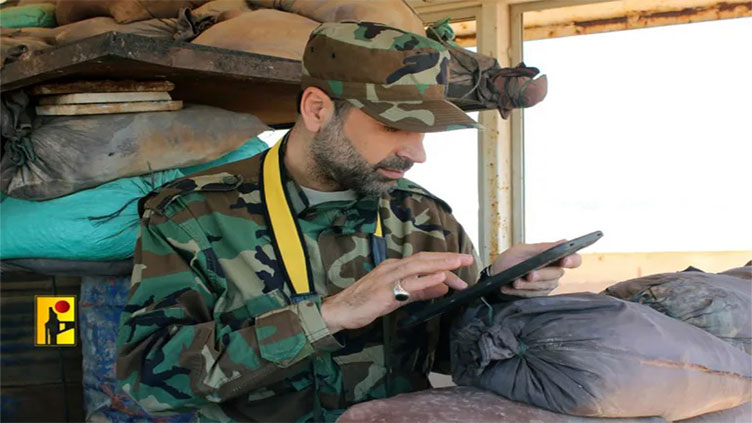Lebanon's Hezbollah says commander killed in Israeli strike

World
Israel on Monday killed a top Hezbollah commander in a strike on south Lebanon.
BEIRUT (AFP) – Israel on Monday killed a top Hezbollah commander in a strike on south Lebanon, the Iran-backed group and a security official said, as regional tensions soar amid the Gaza war.
Hezbollah in a statement announced the killing of a "commander" for the first time in three months of cross-border clashes with Israeli forces.
It said Wissam Hassan Tawil had died "on the road to Jerusalem" -- the phrase used by the Shiite Muslim movement for fighters killed by Israel.
A security source told AFP that Tawil "had a leading role in managing Hezbollah's operations in the south", near the Israeli border.
The official, requesting anonymity for security reasons, said that the commander, who held several other top positions in the group, "was killed in an Israeli strike targeting his car in the south".
The Israeli military said it struck Hezbollah "military sites" in Lebanon on Monday, but did not immediately comment on Tawil's death.
Hezbollah released photographs of Tawil alongside leaders of the movement as well as top Iranian general Qasem Soleimani, who headed the Islamic Revolutionary Guard Corps's foreign operations until he was killed in a US strike in 2020.
Other photos showed him beside Hezbollah chief Hassan Nasrallah and the group's former top commander Imad Mughniyeh, killed in a 2008 car bombing in Syria blamed on Israel.
Tawil also appeared alongside Hezbollah's former military commander in Syria, Mustafa Badreddine, who died in 2016 and had been indicted by an international court for the killing of Lebanon's former premier Rafic Hariri.
REGIONAL TENSIONS
Tawil was the highest-ranking Hezbollah member to be killed since near-daily exchanges of fire with Israeli forces across the border began after the Israel-Hamas war broke out on October 7.
Iran's foreign ministry spokesman, Nasser Kanani, strongly condemned the attack and warned against the "efforts of the Zionist regime (Israel) to expand the scope of conflict and war in the region".
Kanani described Israel's actions as "blatant terrorist operations", which he said were due to "painful blows inflicted on its false hegemony in field battles, including in the Gaza Strip."
The killing of Hamas's deputy leader in Beirut last week, in a missile strike widely attributed to Israel, has raised fears of a wider conflagration.
Saleh al-Aruri was the most high-profile Hamas figure to die during the three-month war, in the first attack on Beirut since the fighting began.
On Friday, Nasrallah warned Israel his fighters would respond swiftly to Aruri's killing. The group claimed an attack on an Israeli air control base the next day.
On Saturday, European Union foreign policy chief Josep Borrell met in Beirut with Mohammed Raad, head of Hezbollah's parliamentary bloc, as part of a push to avoid Lebanon being dragged into the Israel-Hamas conflict.
In November, Raad's son was killed in an Israeli strike in south Lebanon along with five other Hezbollah members, the group had said.
The cross-border violence has killed more than 180 people in Lebanon, including over 135 Hezbollah fighters, but also more than 20 civilians including three journalists, according to an AFP tally.
In northern Israel, nine soldiers and at least four civilians have been killed, according to Israeli authorities.


